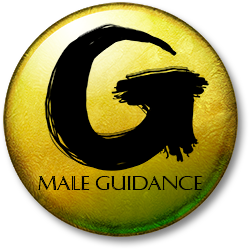
Hashimoto’s in Men: Don’t Ignore the Signs
Introduction: Hashimoto’s Disease Hits Men Too
Hashimoto’s disease, an autoimmune condition, throws a wrench into your thyroid’s work. This butterfly-shaped gland in your neck makes hormones that control your body’s engine, the metabolism. Hashimoto’s confuses the immune system, which normally fights germs, into attacking the thyroid instead. This attack can lead to hypothyroidism, where the thyroid sputters and doesn’t produce enough hormones.

Though often thought of as a women’s issue, Hashimoto’s disease can strike men too. Millions of men worldwide actually have it. The symptoms of hypothyroidism caused by Hashimoto’s can be sneaky in men, sometimes hiding as other health problems. This can make it tricky to diagnose early. Since early treatment is key to managing Hashimoto’s, it’s important for men to know how this disease can show up differently in their bodies. By understanding the symptoms and risk factors, men can take charge of their health and see a doctor if something feels off.
Symptoms in Men: A Different Twist
Hashimoto’s disease can cause hypothyroidism, and the symptoms men experience may differ slightly from those commonly seen in women. While fatigue, weight gain, and feeling cold are all common complaints, men with Hashimoto’s might also notice a dip in their energy levels that makes it hard to get through the day. This fatigue can be so bad it interferes with work, hobbies, and even relationships.
Another symptom men might face is muscle weakness. This can make everyday tasks like climbing stairs or carrying groceries a chore. Additionally, men with Hashimoto’s may experience a decrease in sex drive, or trouble getting or keeping an erection (erectile dysfunction). These symptoms can be frustrating and embarrassing, but it’s important to remember they’re treatable with proper diagnosis and medication.
Risk Factors and Diagnosis: Who Gets It and How Do We Know?
Having a family history of Hashimoto’s disease or other autoimmune conditions like rheumatoid arthritis or type 1 diabetes ups your chances of developing it. Men with certain medical conditions like celiac disease or pernicious anemia are also at a higher risk.
If you’re experiencing symptoms that suggest hypothyroidism, a simple blood test can measure your thyroid hormone levels. This test checks for both the amount of thyroid hormone your body is making and the level of TSH (thyroid-stimulating hormone) produced by your pituitary gland. The pituitary gland normally revs up the thyroid to produce more hormone if levels get too low. A high TSH level with low thyroid hormone levels is a strong sign of Hashimoto’s disease. Your doctor may also perform a physical exam to check for an enlarged thyroid gland, also known as a goiter. Early diagnosis is key, so if you’re worried, talk to your doctor.
Treatment Options: Getting Back on Track
The good news is there’s a simple and effective treatment for hypothyroidism caused by Hashimoto’s disease: medication. The most common medication is a synthetic version of the thyroid hormone called levothyroxine. This pill replaces the hormone your thyroid isn’t making enough of, bringing your metabolism back up to speed.
Finding the right dose of levothyroxine usually involves a few blood tests over time. Once you’re on the right dose, you’ll likely need to take the medication every day for life. But don’t worry, it’s a safe and well-tolerated medication.
In addition to medication, there are lifestyle changes that can help manage your symptoms. Eating a healthy diet, getting enough sleep, and exercising regularly can all make a big difference. It’s also important to follow up with your doctor regularly to monitor your thyroid hormone levels and adjust your medication as needed.
Conclusion: Taking Charge of Your Health
Hashimoto’s disease can be a drag on your energy and overall well-being. But the good news is, with proper diagnosis and treatment, you can manage it and get back to feeling your best. If you’re a man experiencing symptoms like fatigue, weight gain, muscle weakness, or changes in sex drive, don’t hesitate to talk to your doctor. Early diagnosis is key, and treatment is straightforward. By taking charge of your health and working with your doctor, you can keep Hashimoto’s disease from slowing you down.











